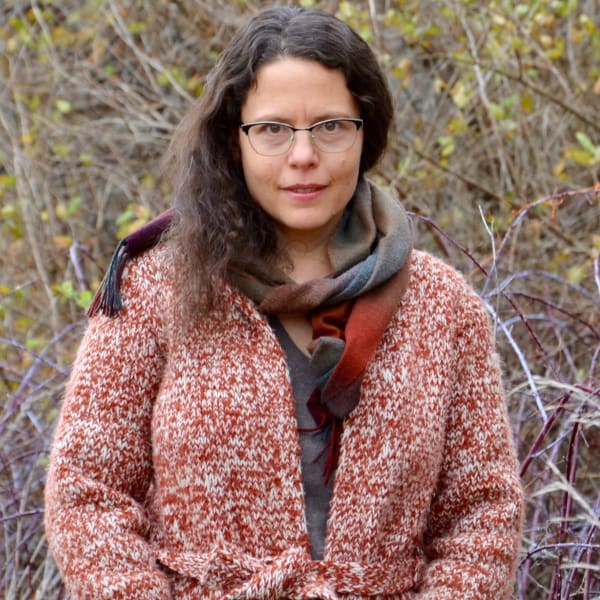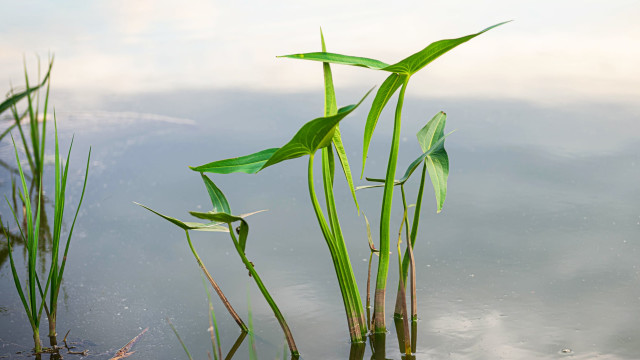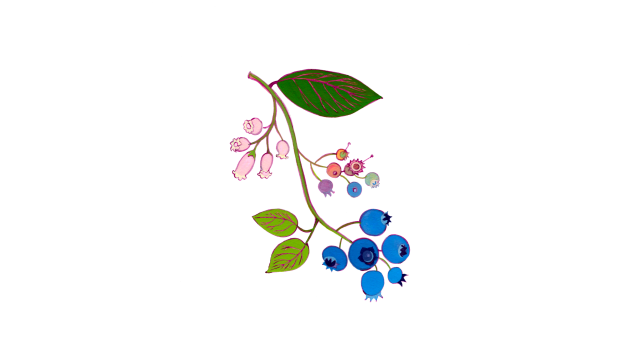Insights with Mulberries

As the mother of two young boys, I have my share of regrets, but there is one parenting achievement on which I look back with unqualified satisfaction: My second son’s first food other than breastmilk was a sun-warmed mulberry transferred straight from the tree into his mouth. Part of my satisfaction is simple — mulberries are delicious. The other part is wrapped up in hope. Foraging has helped me understand my place and everything that affects it. In that first wild bite, I see the seeds of my son’s own understanding of the world.
We were with my husband and our older son at our favorite spot for mulberry picking, a small prairie preserve across the road from the Rock River in northern Illinois. The prairie is encircled by a wide mowed path, with a fence around the outside separating it from private land. Along this fence, rooted on the private side but arching onto the public, grow perhaps a dozen wild mulberry trees.
Pleasure of eating
I have read that native mulberries grow in this part of the country, but the trees surrounding the prairie belong to a species introduced from Asia, Morus alba, which has glossy leaves and masses of delicious, deep purple fruit. Every summer our family spends many mornings strolling along the mowed path between prairie flowers and shade trees, gorging ourselves on sweet sticky fruit until our hands and lips are hopelessly stained.
My younger son was around six months old when we brought him there for the first time. Before he had even swallowed the berry in his mouth, he was reaching out his fat little hand for more. His first bite of solid food introduced him to the true pleasure of eating — not simply as a mechanical process but as a social and natural experience that connects us to one another and the world. And yet “pleasure” is too simple a description that this heightened awareness of connection brings. Our web is no unsullied paradise, and so there is fear, too, and sorrow, and a sense of responsibility to somehow make it better.
This summer, we went again to our favorite tree line. It was later in the season, which around here usually lasts from June through mid-July, and the mulberry trees were interspersed with frothy clouds of sweet-smelling elderflower. Songbirds and monarchs flitted among milkweed, echinacea, and yellow coneflowers. We discovered a thicket of black raspberries loaded with fruit the size of my thumb, and we added these to our plastic tubs to bring home for mixed-berry pie. In many ways, it was a perfect day.
But my enjoyment was shadowed by worry over an environmental disaster that had recently occurred not far from us. Twenty-eight miles upriver from our mulberry patch, the Chemtool lubricant factory also sits a mere thousand feet or so from the Rock River. In mid-June, this factory gained brief national notoriety when an explosion and massive fire threatened to send chemicals and heavy metals from the plant and firefighting effort into the air and river. The state attorney general is now suing the company for violating environmental regulations. At the time we didn’t know how severe the impacts might be, or how far downstream they might flow. So far, testing suggests they are localized, but this is only a temporary comfort.
The land has a limited capacity to buffer us from societal madness; in time, industry’s offenses impact even the most secluded glades and meadows. Foraging makes me more aware of this interconnectedness, because in nourishing my family directly from the land, I have made us vulnerable to whatever harm it suffers. It is impossible to maintain the illusion of separation from the natural world that the industrial food system offers.
Food systems & nature
I remember the moment I first became aware of this vulnerability. I was in Fukushima Prefecture not long after the triple nuclear meltdown there, reporting on the impacts of fallout on forest ecosystems. I had been speaking with scientists and officials working on remediation plans, but also with rural people mourning the loss of their ability to gather mushrooms and other wild foods in the forests. Driving through the mountains between interviews one day, I stopped my car by the side of the road. As I watched a hawk soar over a tangle of grasses and trees, a kind of horror gripped me. I felt as if the paths by which radionuclides permeate the environment had been drawn over the landscape with a bright red marker. I saw the contaminants moving inexorably from grass seed to mouse to hawk, and I understood the futility of government plans to superficially “cleanse” them from the forest floor.
Among all the people I interviewed for that project, those who fed themselves from the forest seemed to grasp the gravity of their situation most clearly, because only they were fully awake to their place in the web of connections. Ten years later and halfway around the world, I, too, am eating from the place where I live, with all the joy and vulnerability that brings. It has taken me four decades to open my eyes; my hope is that with enough mulberries, my sons might wake up a little faster.
Key Takeaways
- Mulberries as a wellbeing metaphor.
- Nature and food systems are one.
- Eat more diverse and nutritious food.





